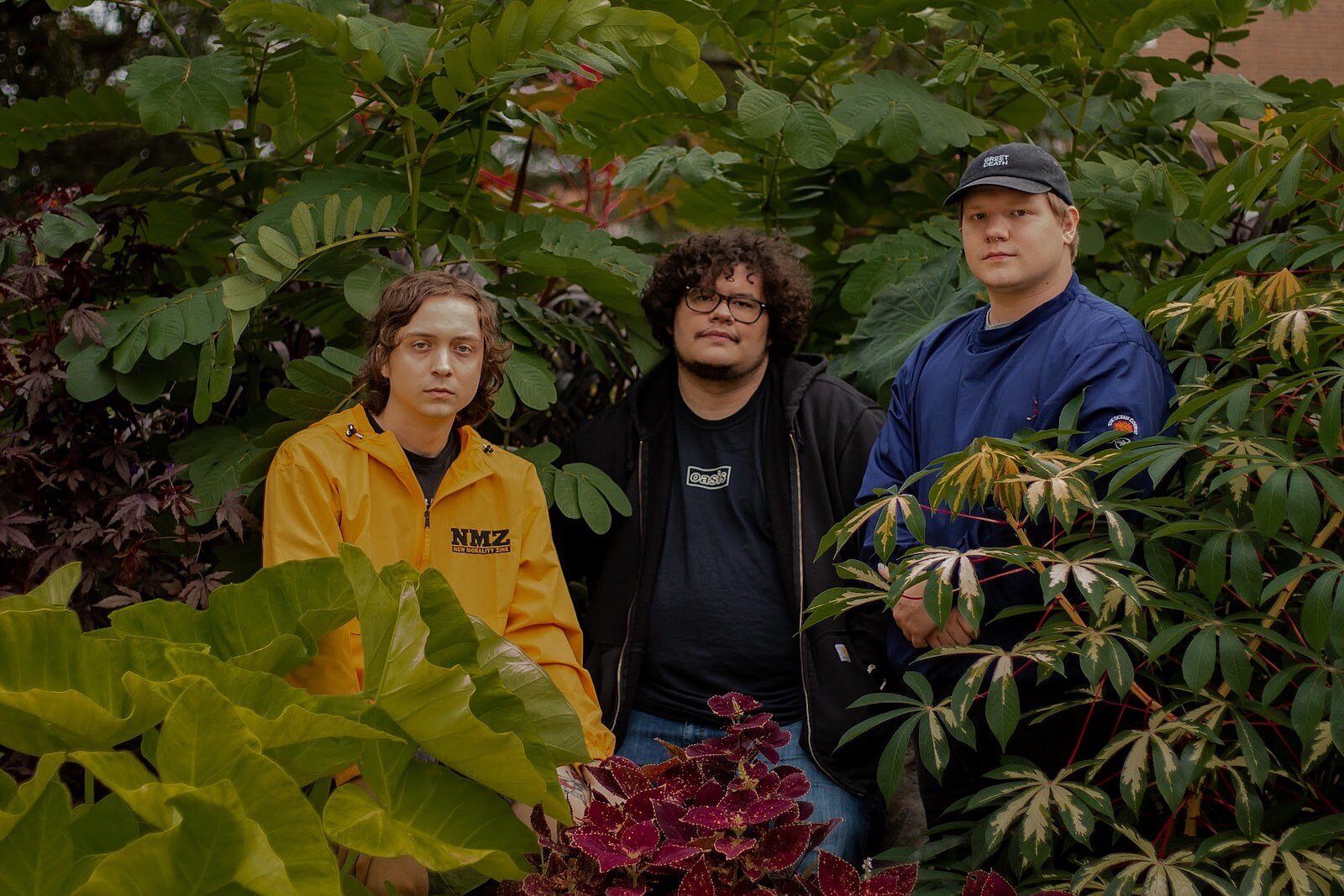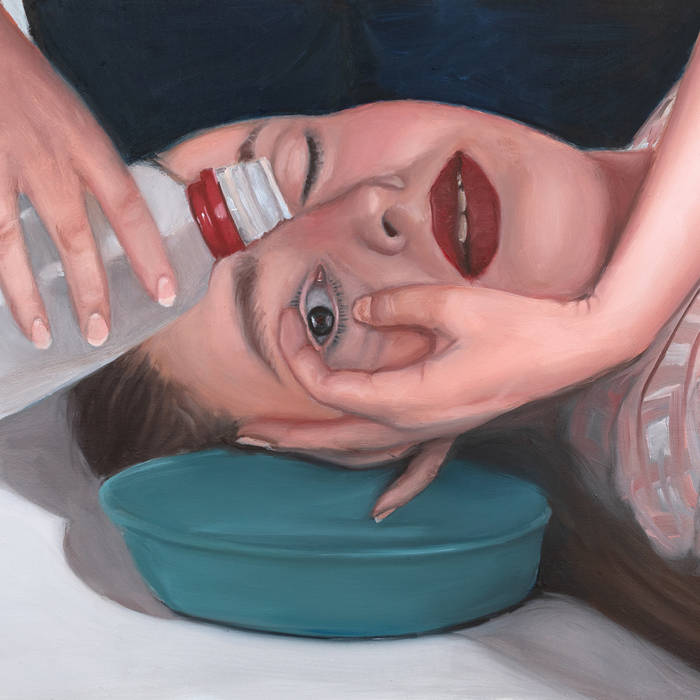Finding Balance Amidst Chaos - An Interview with Portrayal of Guilt
/Photo: Addrian Jafaritabar
Content Warning: This article discusses themes of self-harm and suicide.
It’s very easy to get hung up trying to describe the sound of Portrayal of Guilt. Is this hardcore? Perhaps it’s black metal? Could it even be screamo? Ultimately, these questions are merely distractions because all that really matters is that the music is straight-up brutal. The band is adept when it comes to infusing their caustic fury with elements of hardcore, black metal, harsh noise, even ambient, and their sophomore LP, We Are Always Alone, is a perfect distillation of this collage.
“The Second Coming” kickstarts the album with dizzying riffs and thunderous blast beats that prop up Matt King’s throat-shredding snarls. In just thirty-three seconds, the song shifts to a refrain that is indebted to screamo before a coda of eerie ambient sounds wraps up the track. In just one minute and thirty-nine seconds, Portrayal of Guilt is able to deliver a thesis of who they are as a band; they make music that is intense, loud, challenging yet rewarding, and most importantly, downright evil.
The album is a document displaying how Portrayal of Guilt has grown as a band. Let Pain Be Your Guide, the group’s debut album, drew the blueprint of what was to come; it’s a hardcore album that dabbles with foreign sonic textures. We Are Always Alone finds Portrayal of Guilt in a state of balance as its influences come in and out of focus, serving the songs with efficiency.
It must also be noted that Matt King’s lyrics are incredibly sharp on We Are Always Alone. While at times challenging to decipher due to his visceral shrieks, King’s songwriting explores themes of despair, pain, and death. “My Immolation” tells the story of a person who is dissatisfied with their life and resorts to burning themself alive in their house. King examines this sorrow with unflinching clarity singing, “I’ve never felt so alive. / My vision fades away as I watch my skin and bones melt / away and turn to ash. / This is where I belong.” It’s a bleak and harrowing sentiment. While many of the songs could be seen as suicidal, King is in no way glorifying self-harm; rather, he is analyzing the emotional and mental anguish of a person struggling with such thoughts.
These lyrical motifs help to bolster the sonic menace created by the band, resulting in a listening experience that is taxing yet gratifying. Portrayal of Guilt brings a lot to the table; the lyrics are dour but sharp, and the instrumentation is abrasive and exhilarating, this allows listeners to view their work from myriad angles. Personally, I was introduced to the band from a metal perspective, and I found the genre tag to be fitting. It’s exciting when a band can be embraced and shared by fans of multiple scenes. While the group might not be a crossover act in the traditional sense, they are a band that moves between subgenres without alienating fans. No matter how you view them or what genre you ascribe to Portrayal of Guilt, all that matters is how hard We Are Always Alone rips.
To get a sense of where the band is coming from, we spoke with Portrayal of Guilt’s singer and guitarist, Matt King.
The band’s genre and sound always seems to be a hot topic when you are being talked about. With the release of We Are Always Alone, it’s easy to see why people are so interested in this discussion as the album features elements of black metal, hardcore, harsh noise, and ambient, yet you have previously stated that, to you, Portrayal of Guilt merely is punk. What does it mean to you to be punk and to make punk music?
Punk, in my opinion, means having complete artistic freedom, where no preconceived rules or ideas exist. Creating something out of nothing based solely on what you enjoy and completely ignoring any thoughts or opinions on the outside while holding nothing back. Just genuinely doing you. That's just my first thought. We're not trying to please anyone, we're just having fun and doing what we want to do, no exceptions.
As a follow-up, what do you think of fans’ discussion of your genre and sound? To me, it shows the band’s versatility and appeal.
I think it's funny as much as it is interesting to see what people think about what we're doing. None of it matters, though we appreciate anyone taking the time to listen to us and give their thoughtful opinion. Call it black metal, hardcore, whatever. None of it is taken into consideration.
Many of the songs on We Are Always Alone are longer than those on previous releases while also seemingly pulling from more genres than before. Was this a conscious effort on your part to go longer and diversify your sound, or was it more of a natural progression?
It was 100% natural progression. Personally, my attention span is so short I can't even get through longer songs as a listener, so the fact we were able to put together a 4+ minute song is pretty incredible.
Your lyrics are often bleak and brutal, featuring themes focused on depression, failure, pain, and suffering. When it comes to constructing a song, do you write lyrics to serve the sound of the music, or is the music meant to serve the anguish depicted in the lyrics?
The lyrics are written and then altered to cater to the music when it comes time to record, though those are two completely separate things.
Texas has a rich punk and metal history. Do you see yourselves as descendants of previous Texan bands and scenes? If so, do you draw inspiration from any of these bands, and is there a certain amount of pride in being known as a Texan band?
No, not really. I can't say we were ever embraced by the scene here, but that might be by choice. We have made a point to follow our own path, although we have massive respect for the Texan bands before us. We will always claim Texas, of course. That's where we're from.
We Are Always Alone was released by Closed Casket Activities, but you also operate your own label, Portrayal of Guilt Records. What made you want to start your own label? What can we expect from future releases?
It has been a goal since we started to operate as a band and as a label, where we're able to release our own records as well as records for our friends and affiliates. We're working on creating our own realm. I only started taking the label seriously as of a couple of months ago, but you can expect multiple cassette and vinyl releases down the line from those friends and affiliates. I'm looking forward to seeing how far we can take this idea.
The album was recorded during the pandemic, and the idea of the “pandemic album” seems to be discussed ad nauseam, yet it holds some merit as every person is affected by the pandemic. Is We Are Always Alone a response to the pandemic in any sort of way?
Not at all. We wrote this album months before the idea of an upcoming worldwide pandemic existed, although it was recorded at the beginning of the lockdown in our area. Perhaps that had an effect on the energy presented within.
With touring postponed for the foreseeable future, are you pivoting to other methods such as livestreams in order to promote the album?
I don't really like the idea of a livestream, personally. We recorded and edited a video of ourselves playing a few songs recently, but even then, it was nowhere near the same energy as a live show. We'd prefer just to wait it out. With no touring going on, it helps us focus on writing for more upcoming releases, which we have planned for the rest of the year.
Connor lives in San Francisco with his partner and their cat, Toni. Connor has an MFA in creative writing and is working toward becoming a community college professor. When he isn’t listening to music or writing about killer riffs, Connor is obsessing over coffee and sandwiches.















